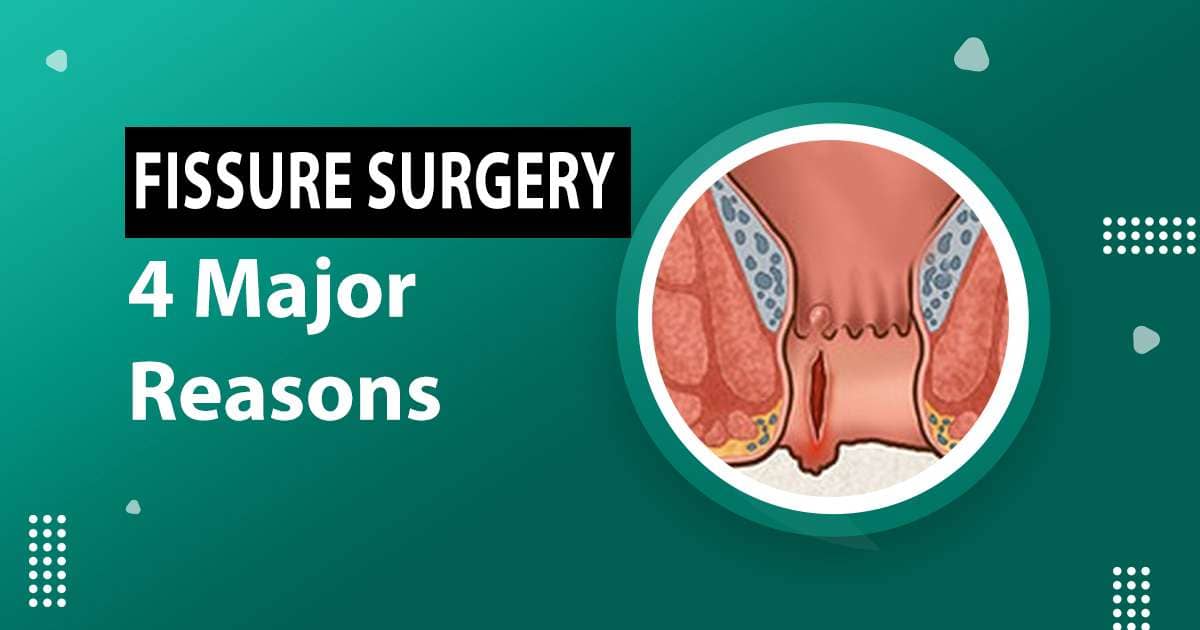Anal fissures are often mistaken for piles but their primary difference is that they usually cause more pain and discomfort. In contrast, piles are painless and usually cause more bleeding, affecting daily life. It’s important to understand anal fissure surgery, their symptoms, and their possible complications. This article explores these topics, focusing on surgical options when conservative treatments fail.
Dr Abdullah Iqbal Offered Piles Treatment in Karachi
Definition and Symptoms of Anal Fissures
Anal fissure is a small tear in the anal mucosa. This tear usually causes sharp pain and occasional bleeding during bowel movements, especially if the bleeding is on toilet paper. Key symptoms of anal fissures include:
- Severe pain during and after bowel movements
- Bright red blood on toilet paper or stool
- Itching or irritation around the anus
- A visible tear in the anal skin
- A small lump or skin tag near the fissure
Anal fissures are of two types, acute and chronic. An acute fissure is one in which the patient is suffering from a fissure for around the last 4 weeks, or a chronic fissure is one in which the patient is suffering for more than six weeks. Chronic fissures often have more persistent symptoms and may require more aggressive treatment.

Importance of Treatment When Conservative Measures Fail
Most anal fissures heal with conservative treatments like dietary changes, topical ointments, and sitz baths. Increasing fiber intake, staying hydrated, and using stool softeners can help prevent straining during bowel movements, a common cause of fissures. However, if these measures fail and the fissure becomes chronic or recurrent, it’s crucial to seek further medical help. Untreated chronic fissures can lead to complications like infection or anal fistula.
Dr Abdullah Iqbal Offered Gallbladder Surgery in Karachi
Indications for Surgery
Scenarios Where Surgery Becomes Necessary
Surgery is considered when:
- Pain is persistent and severe
- The fissure has become a chronic
- Non-surgical treatments have failed
- Fissures keep recurring despite conservative management
- Complications like infection or fistula occur
Persistent Pain, Chronic Fissures, or Failed Non-Surgical Treatments
When an anal fissure causes continuous pain and doesn’t respond to conservative treatments, surgical options may be needed. Chronic fissures lasting more than six weeks often indicate a more stubborn problem requiring surgical intervention. If non-surgical treatments fail despite adequate effort, surgery becomes necessary.
Types of Anal Fissure Surgical Procedures
– Sphincterotomy
Aims to reduce muscle spasm and pain, allowing the fissure to heal. Significant pain relief and a high healing rate are typical outcomes.
– Fissurectomy
Aims to remove the fissure and scar tissue, promoting healing. Outcomes can vary, with a longer recovery time and potential for complications.
– Laser Surgery
Aims to remove the fissure with minimal tissue damage. Outcomes include reduced pain and faster recovery, though it may not be effective for all fissures.
Benefits of Anal Fissure Surgery
– Pain Relief
Surgical intervention often provides significant pain relief, which is one of the main benefits for patients with chronic anal fissures.
– Faster Healing
Surgery can expedite the healing process, allowing patients to return to their normal activities more quickly than with conservative treatments alone.
– Prevention of Recurrence
Surgical procedures like sphincterotomy can reduce the likelihood of recurrence, providing long-term relief from the condition.
– Improvement in Quality of Life
Patients who undergo successful anal fissure surgery often report a substantial improvement in their quality of life. The reduction in pain and discomfort allows for a return to normal daily activities and improves overall well-being.
Risks and Considerations
– Potential Complications Infection
Any surgical procedure carries a risk of infection. Proper pre-operative and post-operative care can minimize this risk.
– Incontinence
There is a small risk of incontinence (inability to control bowel movements) following procedures like sphincterotomy. This risk is generally low and can be managed with appropriate surgical techniques.
– Recurrence
While surgery reduces the risk of recurrence, it is not eliminated. Proper post-operative care and lifestyle changes can help maintain the benefits of anal fissure surgery.
Pre-Operative Preparation and Post-Operative Care
– Pre-Operative Preparation
Patients should follow their surgeon’s instructions, which may include fasting, bowel preparation, and stopping certain medications.
– Post-Operative Care
This typically involves managing pain, maintaining hygiene, and following a high-fiber diet to ensure smooth bowel movements. Regular follow-up appointments are crucial to monitor healing and address any complications early.
Patient Experiences
Real-life examples or Testimonials
Many patients report positive outcomes after anal fissure surgery. For example, one patient shared, After months of unbearable pain, the sphincterotomy provided immediate relief. The recovery was smooth, and I’m back to my normal life.
Patient Perspectives on Surgery Versus Non-Surgical Options
Patients often weigh the pros and cons of surgery versus conservative treatments. While non-surgical options are less invasive, they may not provide lasting relief for chronic fissures. Those who opt for surgery typically do so after exhausting other treatments, finding that the benefits of pain relief and improved quality of life outweigh the risks.
In conclusion, anal fissures can significantly impact daily life, but effective treatments are available. While conservative measures are often successful, surgery provides a viable and effective option for those with chronic or persistent fissures. Understanding the benefits, risks, and patient experiences can help individuals make informed decisions about their treatment options.
- 5 Bawaseer Ki Alamat Aur Unse Bachne Ke Tarike in Urdu - May 29, 2025
- Important Care after Laser Surgery for Hemorrhoids, Fissure or Fistula - May 29, 2025
- What Is Gynecomastia? Causes, Symptoms, and Treatment Options - May 29, 2025

